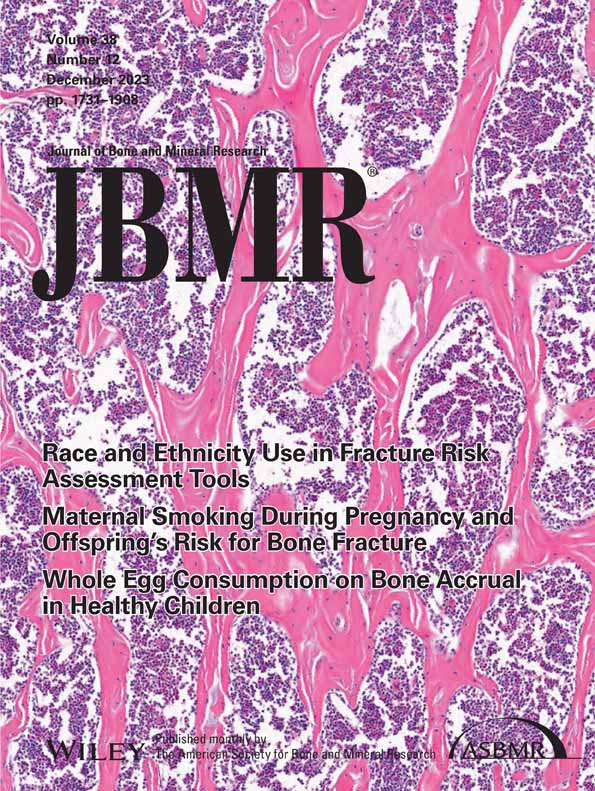Factors associated with self-rated health in patients with paget's disease of bone
Abstract
Multiple studies show that poor self-rated health (SRH) increases the risk of mortality up to 5-fold when compared to excellent SRH. This powerful association remains even with objective health status and risk factors controlled. However, few studies have examined the determinants of SRH, especially as they relate to specific chronic diseases. Here we identify personal characteristics and disease-related attributes that are strongly associated with SRH in a sample of patients with Paget's disease of bone to determine whether any factors can be modified. Two thousand people randomly selected from the Paget Foundation mailing list received a survey asking for information on demographics, general health and functioning, and the impact of Paget's disease. Nine hundred and fifty-eight PD patients returned the completed survey and answered the question, “How would you rate your overall health?” Answers ranged from excellent (1) to poor (5). Ordinary least squares regression was used, with SRH as the dependent variable, to identify those variables significantly associated with SRH. The overall regression model was significant (p = 0.0001; R2 = 0.44). Age (p = 0.005), satisfaction with family help (p = 0.0001), number of comorbid conditions (p = 0.0001), functional limitations (p = 0.0003), disease impact (p = 0.0002), health compared to 5 years ago (p = 0.0001), and depressive symptoms (p = 0.012) were significant predictors. Of these, satisfaction with family help, functional limitations, disease impact, and depressive symptoms are potentially modifiable with appropriate interventions. Future longitudinal studies should examine the effectiveness of such interventions in improving SRH.




